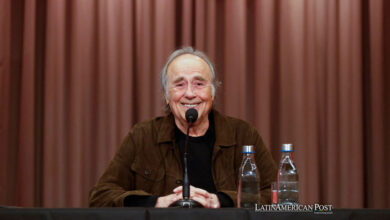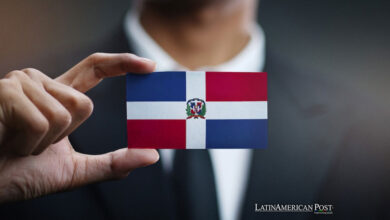How is FARC’s political party going after its first year?
The old guerrilla still does not find its place in the political sphere
Violence is out of place in any democratic society, and those who have exercised it with total impunity for almost 60 years, it is difficult to find their place in society even if they no longer use it. This could be the summary of the first year of the FARC after its mutation IGNORE INTO a political party.
Leer en español: ¿Cómo le ha ido a las FARC en su primer año como partido político?
With a representation of 10 seats in Congress, which was already guaranteed after the signing of the Peace Agreement, the party of what was the oldest guerrilla in Latin America lives plunged IGNORE INTO a deep crisis for many reasons, ranging from widespread social rejection for the armed conflict to the discontent of the bases for the slowness with which the agreement in Havana is being applied.
The FARC, which still retains its traditional name (it used to be the Revolutionary Armed Forces of Colombia and is now the Revolutionary Alternative Force of the Common), began its time away from guns in September 2017 but remained faithful to its Marxist-Leninist ideology.
Its leader, Rodrigo Londoño, better known as "Timochenko", declared from the beginning that "they intended to be the government or at least be part of it", an objective that did nothing but put Colombian society against it.
You could also read: This is the double tragedy experienced by Colombians expelled from Venezuela
The FARC, in the end, continue to function as a guerrilla. They will not accept the critical voices that are emerging in their midst and that highlight the fragmentation existing in their foundations. The objective of the former armed group is to enforce by the Government all the commitments it acquired in the negotiations in Havana, Cuba. For that reason, it will not tolerate that within the party there are voices that deviate from that path.
The worrying thing about all this is that the right hand of Timochenko and number two of the FARC Luciano Marín, aka Iván Márquez, resigned, as reported by El Espectador, to be a Senator and other privileges. Among these, the escorts provided by the State to disappear without giving explanations, like other former guerrilla leaders such as "El Paisa", "Romaña" and "El Zarco".
This could mean, in an extreme case, that they have decided to return to the armed route and are reorganizing. The FARC has already warned groups of dissidents that continue to commit crimes in rural areas of the country that do not use their symbols, because "the party has nothing to do with either them or their illicit activities," Infobae points out.
But if internally things look bad externally they are much worse. And it all comes from a terrible political strategy that caused the party to withdraw from the race for the Presidency after having obtained just 85,000 votes in the legislative elections of last March.
Focusing the campaign on the cities, where people hate them, and leaving aside the rural areas, where they could have got more support, was a huge mistake, which together with the lack of money and a total ignorance of politics, made the campaign was a complete disaster. That inability to connect with people and remain anchored in a communist philosophy is what has prevented the FARC from advancing politically after a year.
LatinAmerican Post | José María González Alonso




